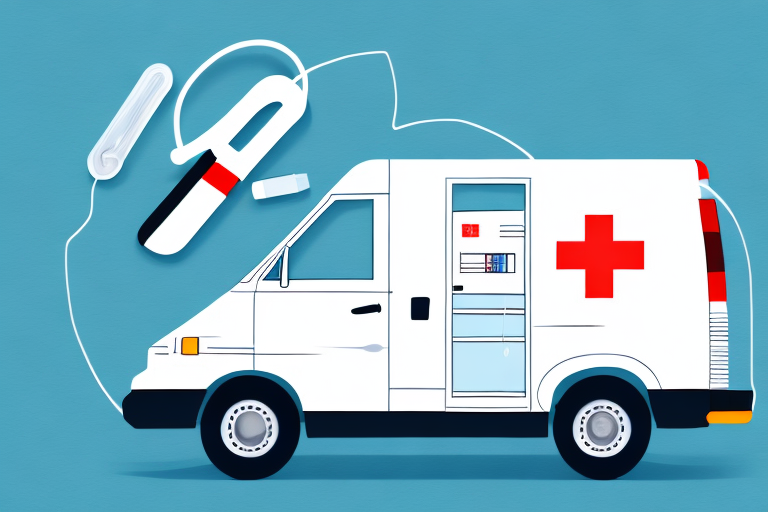Securing Government Contracts for Medical Courier Services
In today’s modern world, medical courier services are indispensable to the healthcare industry. The timely and secure transportation of medical supplies, equipment, and samples ensures the seamless operation of healthcare providers, hospitals, laboratories, and research institutions. Securing government contracts in this sector presents significant opportunities for businesses. However, navigating the application and contract management processes requires a clear understanding of the requirements and legal considerations involved.
Understanding the Importance of Medical Courier Services in Government Contracts
Medical courier services are a critical component of healthcare logistics. According to the Centers for Disease Control and Prevention, the efficient transportation of medical supplies is essential for maintaining healthcare operations, especially in military hospitals, VA clinics, and other government healthcare facilities.
Handling Sensitive and Confidential Information
Medical couriers are trained to manage sensitive medical records, lab specimens, and confidential materials with the highest level of care. This ensures patient privacy is maintained and medical information remains secure during transit, complying with regulations such as HIPAA.
Real-Time Tracking and Monitoring
Advanced tracking systems allow healthcare providers to monitor shipments in real-time, providing visibility from pickup to delivery. This transparency is crucial for ensuring that medical supplies arrive on time and in optimal condition, directly impacting patient care and safety.
Qualifications and Requirements for Government Medical Courier Contracts
To qualify for government medical courier contracts, companies must meet specific criteria set by government agencies. Key requirements include:
- Registration and good standing with state and federal agencies.
- A strong financial history with the ability to secure necessary insurance and surety bonds.
- Experience in the healthcare and logistics industries with a proven track record of high-quality service.
- Reliable and efficient transportation systems equipped with real-time tracking capabilities.
- Secure and compliant storage facilities for medical supplies and equipment.
- Trained staff knowledgeable in regulations and guidelines for transporting medical materials.
Meeting these qualifications is essential for businesses aiming to secure government contracts and provide critical services to the healthcare sector.
Navigating the Application and Proposal Process
Application Process for Medical Courier Contracts
The application process for government medical courier contracts can be complex and time-consuming. Companies must thoroughly understand the submission requirements and ensure compliance with all government regulations. Detailed research into the medical courier industry and the specific needs of potential government clients is crucial before applying.
Developing a Strong Proposal
A robust proposal should address all aspects of the contract requirements, including:
- Detailed description of services to be provided.
- Qualifications and experience of the company.
- Cost structure and pricing strategy.
- Timeline for service delivery.
- Logistics management capabilities.
- Contingency plans for unexpected events or emergencies.
Highlighting industry certifications and specialized training programs can strengthen the proposal by demonstrating compliance with industry standards.
Legal and Regulatory Compliance
Adhering to HIPAA and Other Regulations
Compliance with HIPAA regulations is mandatory for medical courier services handling patient data. Additionally, adherence to Occupational Safety and Health Administration (OSHA) standards ensures the safe transportation of medical materials.
Engaging experienced legal counsel can help companies navigate the complex legal landscape and ensure all regulatory requirements are met.
Insurance and Liability Coverage
Proper insurance coverage is essential, including liability insurance to protect against damages or losses during transportation and workers’ compensation insurance to cover employee injuries on the job.
Best Practices for Contract Management
Effective contract management ensures the timely and efficient delivery of services under government contracts. Key practices include:
- Implementing rigorous performance monitoring and reporting systems.
- Maintaining transparent communication with government agencies.
- Developing risk management strategies to handle potential disruptions.
Building trust through transparency and reliability can lead to long-term relationships and repeat contracts.
Maximizing Profitability in Government Contracts
Profitability in government medical courier contracts can be achieved by:
- Optimizing operational efficiency through technology such as GPS tracking and electronic signatures.
- Reducing costs by streamlining delivery routes and minimizing fuel expenses.
- Building strong relationships with government agencies and healthcare providers to secure ongoing and new contracts.
Focusing on both cost management and service quality ensures sustained profitability and business growth.
Building Strong Relationships with Government Agencies
Establishing and maintaining strong relationships with government agencies is crucial for the success of medical courier services. This involves:
- Regular engagement and communication with agency representatives.
- Keeping informed about policy changes and updates that may affect service delivery.
- Demonstrating reliability and responsiveness to agency needs.
Strong relationships foster trust and can lead to increased opportunities for contract renewals and expansions.
The Bottom Line
Securing government contracts for medical courier services presents a lucrative opportunity for businesses in the healthcare logistics sector. Success requires a comprehensive understanding of the importance of medical courier services, meeting stringent qualifications, navigating complex application and proposal processes, ensuring legal and regulatory compliance, managing contracts effectively, maximizing profitability, and building strong relationships with government agencies. By addressing these factors, companies can secure government contracts and contribute significantly to the efficient functioning of the healthcare system.




















